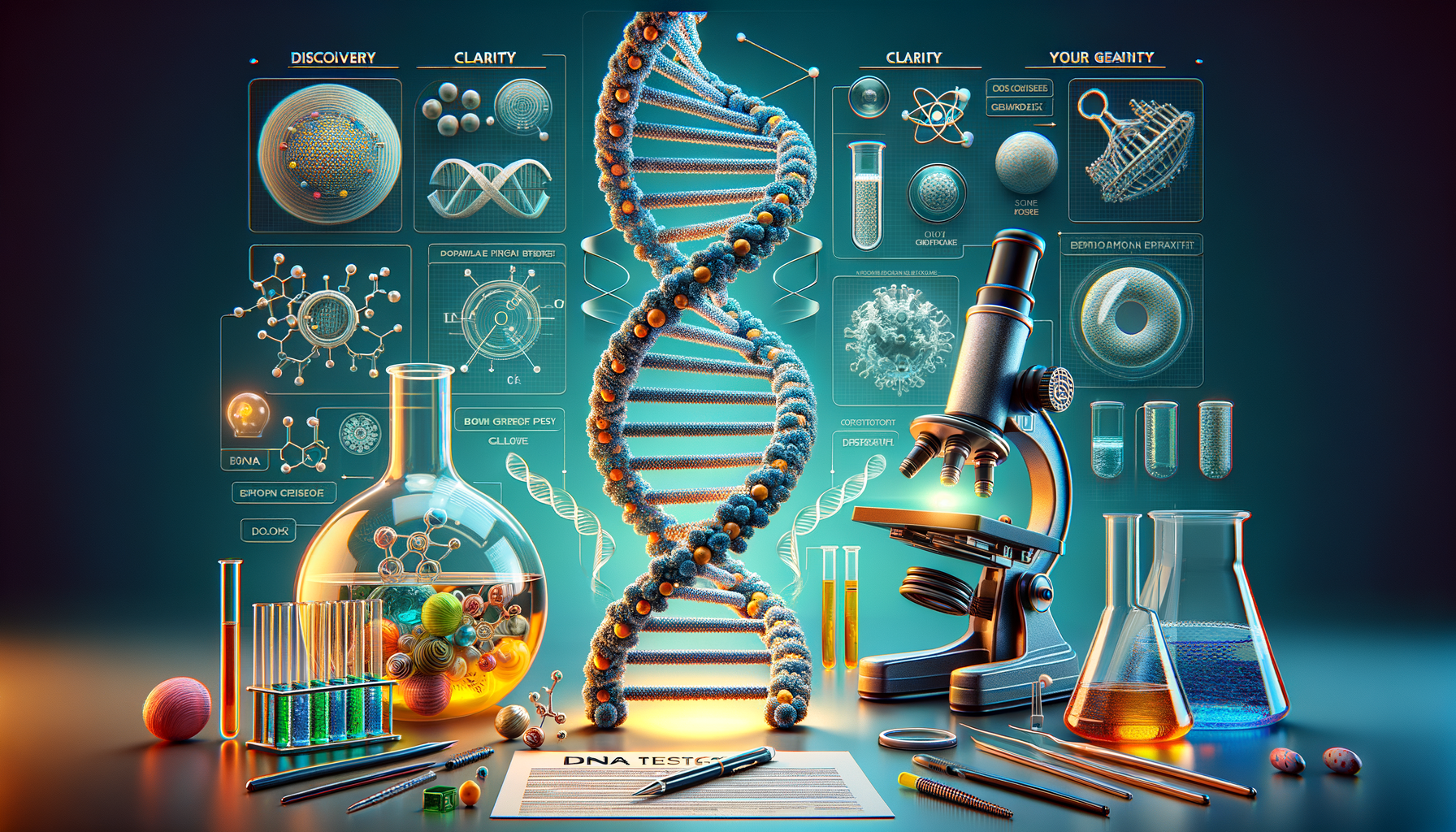
Get Clarity About Your Genetic Profile
Introduction to DNA Testing
DNA testing has emerged as a revolutionary tool in understanding our genetic makeup. This scientific advancement allows individuals to delve into their ancestry, identify potential health risks, and even discover unique traits. As technology continues to evolve, DNA testing has become more accessible, empowering people to make informed decisions about their health and lifestyle. By analyzing your genetic profile, you can gain insights into your familial connections, predispositions to certain conditions, and even your dietary needs. In this article, we’ll explore the various facets of DNA testing and its significance in today’s world.
The Science Behind DNA Testing
At the core of DNA testing lies the intricate science of genetics. Our DNA, or deoxyribonucleic acid, is the blueprint that determines our biological characteristics. Composed of nucleotides, DNA sequences carry the genetic information passed down from our parents. Modern DNA testing technologies analyze these sequences to provide insights into various aspects of our genetic makeup.
There are several types of DNA tests available, each serving different purposes. For instance, autosomal DNA tests examine the 22 pairs of autosomes, which are non-sex chromosomes, to provide information about ancestry and ethnicity. On the other hand, mitochondrial DNA tests trace maternal lineage, while Y-DNA tests focus on paternal ancestry. These tests work by comparing your DNA with reference populations or databases to identify similarities and differences.
Understanding the science behind DNA testing is crucial, as it helps in interpreting the results accurately. The data obtained from these tests can reveal genetic predispositions to certain health conditions, allowing individuals to take preventive measures. Moreover, DNA testing can uncover genetic markers associated with specific traits, offering a deeper understanding of one’s unique characteristics.
Applications of DNA Testing
DNA testing has a wide range of applications, making it a valuable tool in various fields. One of the most popular uses is in genealogy, where individuals explore their ancestry and build family trees. By connecting with distant relatives and uncovering ancestral roots, people can gain a sense of belonging and identity.
In the realm of healthcare, DNA testing plays a pivotal role in personalized medicine. By identifying genetic markers linked to diseases, healthcare providers can tailor treatments to individual patients, enhancing the efficacy of medical interventions. For example, pharmacogenomics, a branch of DNA testing, examines how genes affect an individual’s response to drugs, allowing for more precise medication prescriptions.
Additionally, DNA testing is used in forensic science to solve crimes and identify individuals. By analyzing DNA samples from crime scenes, forensic experts can match them with potential suspects, aiding in criminal investigations. This application has significantly improved the accuracy and reliability of forensic evidence, contributing to the pursuit of justice.
Ethical Considerations and Privacy Concerns
While DNA testing offers numerous benefits, it also raises ethical considerations and privacy concerns. The collection and storage of genetic data pose potential risks, as unauthorized access or misuse of this information can lead to discrimination or identity theft. It is crucial for DNA testing companies to implement robust security measures to protect individuals’ genetic data.
Moreover, ethical dilemmas arise when it comes to informed consent and the sharing of genetic information with third parties. Individuals should be fully aware of how their data will be used and have the option to opt-out of data sharing. Transparency and clear communication from DNA testing companies are essential in addressing these concerns.
Another ethical issue is the potential for genetic discrimination. Employers or insurance companies might misuse genetic information to make decisions about hiring or coverage, which raises questions about fairness and equality. Legislation such as the Genetic Information Nondiscrimination Act (GINA) in the United States aims to protect individuals from such discrimination, but ongoing vigilance is necessary to ensure compliance and address emerging challenges.
Making Informed Decisions with DNA Testing
Understanding your genetic profile through DNA testing can empower you to make informed decisions about your health and lifestyle. By gaining insights into your genetic predispositions, you can take proactive steps to manage potential health risks. For instance, if your DNA test reveals a higher risk for a particular condition, you can work with healthcare professionals to develop a personalized prevention plan.
Moreover, DNA testing can guide lifestyle choices, such as diet and exercise. Some tests provide information on how your body metabolizes certain nutrients or responds to physical activity, allowing you to tailor your habits for optimal health. This personalized approach can enhance your overall well-being and help you achieve your health goals.
It’s important to approach DNA testing with a critical mindset and seek guidance from genetic counselors or healthcare providers when interpreting the results. While DNA testing offers valuable insights, it is not a definitive predictor of future health outcomes. Genetics is just one piece of the puzzle, and environmental factors, lifestyle choices, and other variables also play a significant role in determining your health.

